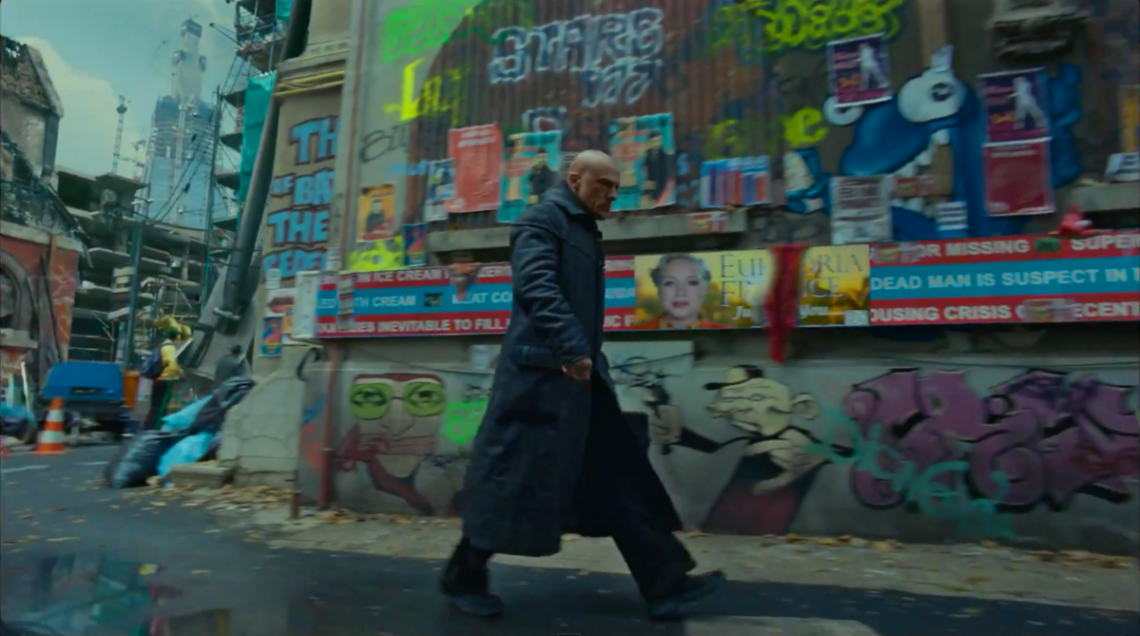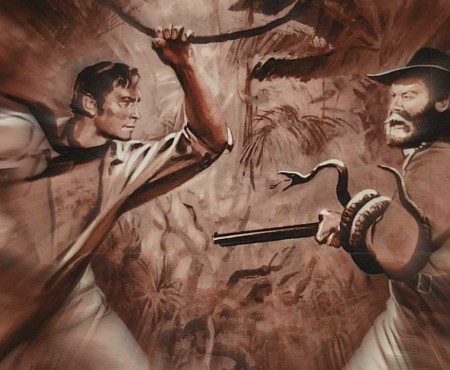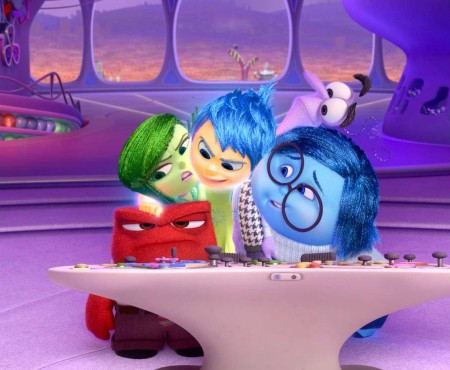Distributor: Well Go USA
Release Date: January 20, 2015
MSRP: $29.98
Order at Amazon
Film: C- / Video: B+ / Audio: B / Extras: C-
The Zero Theorem begs comparisons to Terry Gilliam’s magnum opus, the ornate dystopian epic Brazil, from the word go: It features an overworked protagonist, Qohen (Christoph Waltz) who toils under Orwellian eyes, finding escape only in fevered imagination centered on the literal woman of his dreams (Mélanie Thierry). Technological bric-a-brac intoxicates the viewer but overwhelms the hero, while Gilliam’s love of fish-eye lenses further distort the dimensions of the clutter weighing down the characters.
Brazil benefited from having been made when any concept of the future was rooted in the tactile and mechanical. Its oversized machinery and extensive paper trail wasn’t just decoration, it was the film’s central metaphor: bureaucracy as suffocation and noise. But The Zero Theorem exists post-digital, and Gilliam’s low-rent animations make his future look instantly dated, a candy-coated rendition of Blade Runner that takes its aesthetic from the bright, building-sized advertisements that loom over every street. The problem is that all the flash of these sense-overloading posters and commercials is that they look as if they were made in 1993, all clumsy, clunky motion and creepily cheery sloganeering. Gilliam tries to pepper in all sorts of references for throwaway gags like “The Church of Batman the Redeemer,” yet his satire is that of a man who stopped watching TV around the time he stopped appearing on it, and who gets his information about the Internet secondhand.
As such, the film swiftly moves away from its vision of the future to hole up with the paranoid Qohen when he gets a request approved to work from home, an abandoned cathedral whose old-world opulence better suits the director’s style. Qohen’s retreat from what minimal sociality he experiences mirrors Gilliam’s own regression into his comfort zone, and even the film’s wan stabs at relevant humor are soon forgotten to stew with the protagonist, who pathetically waits by the phone hoping to receive a call that will explain the meaning of life.
Gilliam has tried to filter his talents through mirthless drama before, chiefly in 12 Monkeys and the grim(m) childhood fantasia of Tideland, but those films adjusted their overall approach to match the change in tone. The Zero Theorem regularly ventures into areas that demand the director’s most unhinged work, as in an ongoing sexual relationship handled exclusively through a web interface and a sensory suit, or daily toil that looks like Minecraft but for constructing complex equations. The joylessness with which Gilliam handles this material doesn’t make it a tragedy, it makes it a leaden, punchline-lacking comedy, one whose recurring image of a black hole comes to define the hero and the film itself.
It’s especially frustrating to see Gilliam forgo his usual satirical lens, because many areas of the film show him still capable of lambasting the present through the distance of an imagined future. The overworked Qohen isn’t really like Brazil’s Lowry; where that man worked in a thriving society that cared more for worker obedience than productivity, Qohen is more representative of a post-recession worker, one expected to do the work of 10 men for one man’s pay, if that. Furthermore, the cloyingly “topical” references embedded in the film’s ads (“Occupy Mall Street!” coos disembodied lips) act as a Boomer’s warning to millennials that they, too, will one day package up their symbols and slogans of their intended revolution and sell them to their children to profit on their nostalgia. Had the film spent more time with subjects like these, Gilliam may well have had a worthy update to his legacy. As it is, Richard Ayoade can claim to have made the best Terry Gilliam film of 2014.
A/V
Gilliam’s recent output has blended his cartoonish background with the chromatic liberties afforded by digital, and Well Go’s Blu-ray ably ports over an image that’s saturated to the point of giving your television water damage. The relatively cheaper digital cameras used result in smooth flesh tones and a general loss of texture, but that can be attributed to the film; the Blu-ray renders these flaws, as well as the virtues of Gilliam’s always-assured use of wild colors for disorienting effect. Sound is fairly robust, though once again the jarring separation between on-set dialogue and goofy foley effects is a deliberate (or at least budget-forced) scenario that the lossless track can only replicate as produced.
Extras
A handful of extras finish off the disc, all EPK featurettes that primarily hone in on the film’s visual design, with three of the four mini-docs devoted to the CGI, sets, and costumes. There’s nothing to say about them, really, but they at least clarify where most of the attention of the filmmaking was directed.
Overall
Terry Gilliam displays flashes of his old glory with The Zero Theorem, and Well Go’s Blu-ray faithfully presents its virtues and drawbacks with minimal commentary.




















